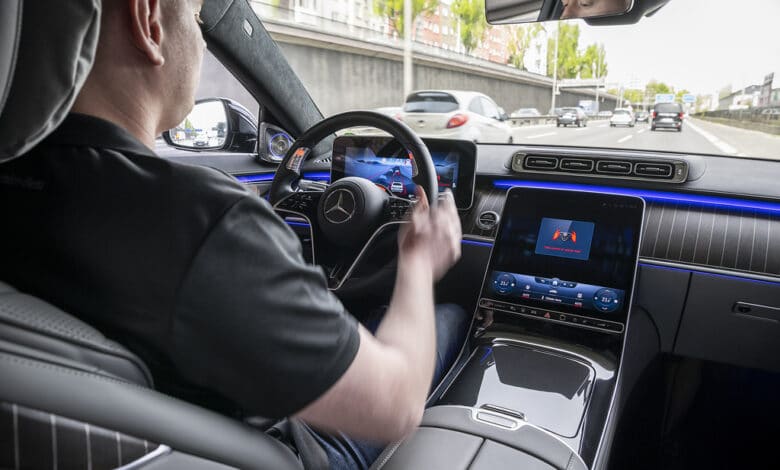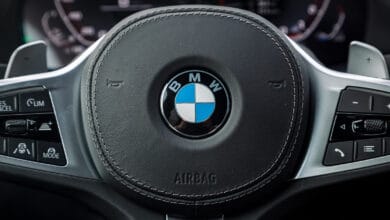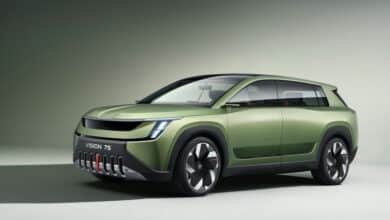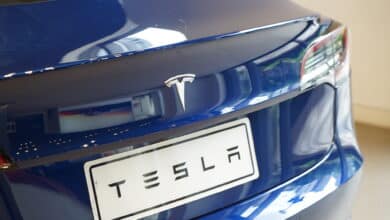
Autonomous driving on highways is to become faster. Passenger cars and commercial vehicles with an internationally valid certification for highly automated driving, will be allowed to travel up to 130 km/h on highways in the future.
Autonomous driving at 130 km/h and lane change
Vehicles that have a lane departure warning system and thus enable autonomous driving will be allowed to travel at speeds of up to 130 km/h on highways in the future. This has now been agreed by the United Nations Economic Commission for Europe (UNECE) at a meeting in Geneva .
Until now, autonomous vehicles, such as Mercedes-Benz with the DRIVE PILOT, have been limited to 60 km/h. That will change in the future. This follows the recommendation of a UN working group from about a month ago.
However, the new regulations for the Automated Driving System (ADS) of passenger cars and light commercial vehicles not only provide for a higher speed on highways, but from now on also allow autonomous lane changes and other unspecified dispositions. Starting in January 2023, the new UN Regulation Number 157 is scheduled to take effect in“all countries that choose to apply it”.
Safety is top priority
In this regard, the new amendment follows the UN regulations for Automated Lane Keeping Systems (ALKS) for so-called Level 3 automation, which was established in June 2020. Accordingly, the systems can only be activated under very specific conditions.
On the one hand, the directions of the lanes must be clearly physically separated from each other, where pedestrians and bicycles are not allowed. In addition, drivers of autonomous cars must be able to manually switch off the ALKS system at any time in order to take control themselves.
In addition, the new UN regulation sets clear requirements for corresponding cars that must be implemented by manufacturers. “The new features must also be compliant with the strict cyber security and software update requirements enshrined in the relevant UN regulations,” the UNECE says.
- Continue Reading: US Transportation Department: Steering wheel requirement to be eliminated for autonomous cars
In Germany, the Mercedes-Benz Drive Pilot system is the first of its kind to allow UN-compliant autonomous driving. With the opening of the Road Traffic Act (StVG) for Level 3 systems in 2017, Germany was the first country to create a legal basis for the intended use of these systems.




No replies yet
Neue Antworten laden...
Gehört zum Inventar
Beteilige dich an der Diskussion in der Basic Tutorials Community →